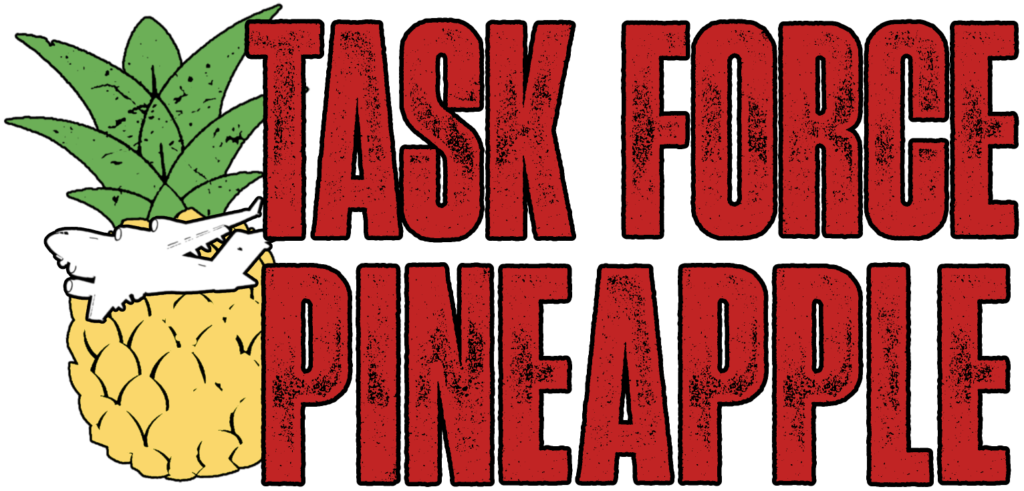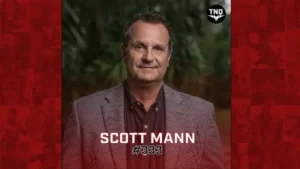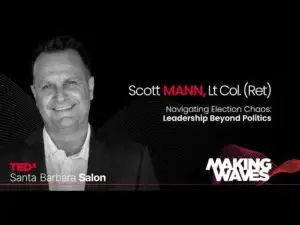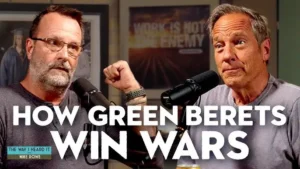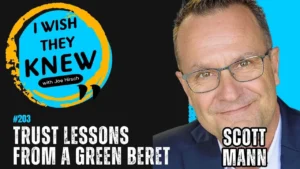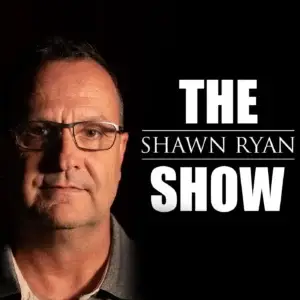Welcome back to the Team Never Quit Podcast with your host, Marcus Luttrell. This week, Marcus takes a deep dive into the mind of an exceptional individual – Lieutenant Colonel Scott Mann, a Green Beret, warrior storyteller, and playwright who has a remarkable journey to share. Scott shares his background as a Green Beret, highlighting the rigorous training and the mindset it instills, as well as the importance of adaptability and resilience in high-stakes environments, drawing parallels to civilian life. He explains how military units connect with local communities and the lessons it offers for corporate and personal relationships.
In his distinguished 23-year military career, Mann operated at the highest levels of the Special Operations Community and has been widely recognized for his successful leadership of teams in complex situations. He led “Operation Pineapple Express” — a grassroots leadership campaign using Rooftop Human Connection Skills to honor a promise and save more than 1,000 Afghans from a life-threatening situation amid the chaos of America’s withdrawal from Afghanistan.
Scott Mann’s journey went from the battlefield to the stage, becoming a playwright and actor in “Last Out,” a powerful play that explores the impact of war on veterans and their families. He has learned that storytelling can heal emotional wounds and bridge the gap between veterans and civilians.
Scott also shares key takeaways from his experiences creating and performing in “Last Out: Elegy of a Green Beret” including the power of vulnerability and the importance of understanding the human cost of war. His vision for the future, both for himself and the broader community, includes his work with veterans and storytelling.
In this episode you will hear:
• [Military branches] Who’s the best? You can’t even have that conversation because every single operations unit has a charter that they do better than anybody else. (12:01)
• Green Beret – their specialty – has been to work by, with, and through indigenous people and help them stand up on their own. (12:13)
• What you lead with are old school interpersonal skills to build relationships and social capital. And go in with 12 and come out with 12,000. (12:53)
• I loved the regiment, I loved the missions, and I loved the men. (19:05)
• I teach the interpersonal skills that Green Berets specialize in. I teach it in corporate America and I teach it as a leadership trait. (20:39)
• You build trust when risk is low, and you leverage it when risk is high. (24:43)
• [Melanie] The government will spend all the money, but the veterans are the ones who are actually serving the people. (32:19)
• Our families of the fallen – not just gold star, but white star families that have lost members to suicide – they are so active in taking care of everybody else. (32:39)
• I can’t say enough about the Vietnam generation. Those guys are amazing. (44:14)
• [Scott to Marcus] Your story and the story of your teammates has changed lives, it’s saved lives, it has created a macro-level understanding of service, sacrifice, and brotherhood. (48:24)
• The country, more than ever, needs the stories of our veterans and military families, because that shows what right looks like. (48:47)
• [Scott to Marcus] You opened the door, and you showed the rest of the veteran community what right looked like in terms of leadership at home, the courage to tell your story, even when it’s hard – to repurpose your struggle in the service of others. (55:43)—
